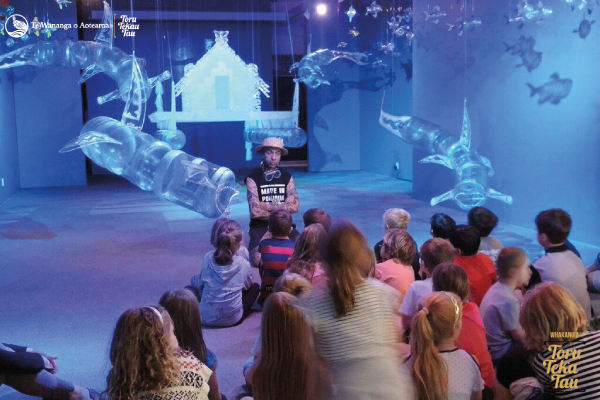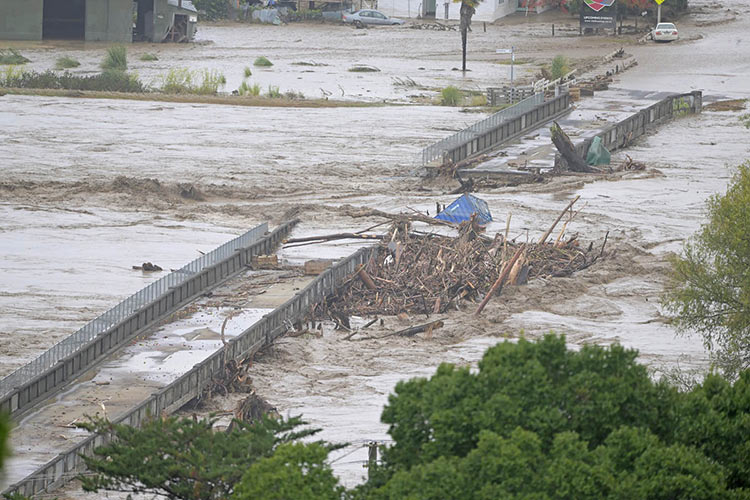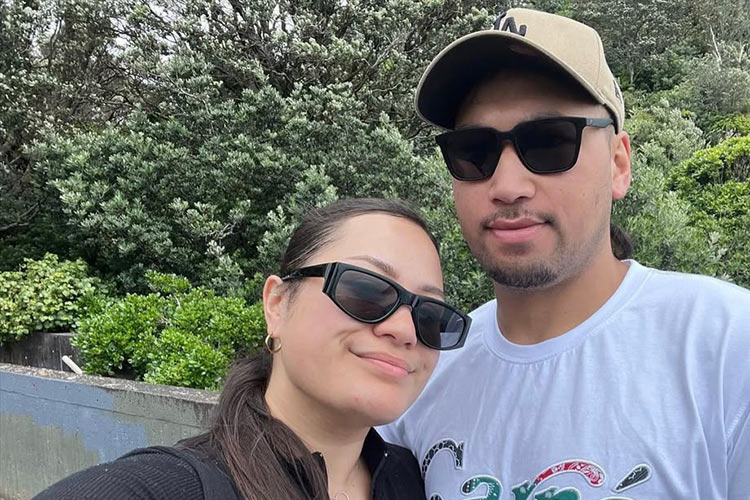The artist of an ocean installation featuring a twin-hulled waka created out of recycled plastic bottles says it’s important that Te Wananga o Aotearoa is recognised.
The 'Wakapounamu' is part of the exhibition; 'Bottled Ocean 2116' at the Pataka Gallery in Porirua and is the work of France-based sculptor George Nuku who enlisted, among many others, TWoA kaiako and siblings’ Frank and Kui Topia to help with the installation’s marine life elements.
Frank and Kui worked ten solid days prior to the show which opened this month and also managed to give Mr Nuku even more time after their 'day job' hours to get the show on its maiden voyage.
“They worked with me on the heads of the three giant Tepatepa Meduse (jelly fish) - they helped me carve them and then painted and bound the multiple elements together - these three works would not have been possible to finish without Frank and Kui coming back. Nga mihi aroha kia korua ma,” said Mr Nuku.
Kui says when the tono came across to work with Mr Nuku they were excited and felt it was a privilege to work with someone of his calibre.
“Originally we were meant to be there for five days but it turned out to be much more. We spent quite a few late nights there with other people coming and going working on fish and jelly fish.”
“Working with George was an awesome experience. As kairaranga we connected straight away to the kaupapa as he encourages an indigenous methodology that considers our genealogical connection to the natural environment. This is the realm that we work in and understand as weavers. I have respect and understanding for his mahi and the mediums he works with; plastic and perspex, and look at it with different eyes now.”
Kui says another bonus was establishing a relationship with Pataka which has created yet another opportunity for the Porirua campus to network within the community.
“This kaupapa has opened up new pathways and possibly others may rise again which we welcome.”
'Bottled Ocean 2116' comes as response to the lack of theological, cultural or spiritual connection to this medium and the abuse of the planet that comes from this lack of thought.
“We must transform our relationship with plastic if we want to preserve our environment,” said Mr Nuku.
“Rangatahi are the ones able to make the change in this thinking. They are the future.”
The Pataka education team organised visits and sessions with schools, colleges, tertiary institutions to focus on these environmental issues during his visit where he took the opportunity to inform them that they would collaborate directly and create jellyfish from plastic bottles to be an integral part of the installation itself.
“The young people had no qualms and proceeded with enthusiasm, - these large Tepatepa meduse (jellyfish) were very labour intensive and their involvement was essential to the realisation of these works,” he says.
“I will never forget all the different people who involved themselves in this project. I will never stop being constantly humbled by these occurrences in all the things I do, in all the places I go and all the people who come into and touch my life. The whole way I approach these projects is to collaborate with groups of people – slaves of love I call them. Tena Koutou, Bonjour e hoa ma mes amis”




































